
La Plagne: The Alpine Paradise
Nestled in the heart of the French Alps, La Plagne offers a spectacular escape for nature lovers and adventure seekers. This ski resort, part of the Paradiski area, is renowned for its extensive ski slopes, catering to beginners and experts alike. Whether you're gliding down pristine pistes or enjoying the panoramic views from the lift, La Plagne promises an unforgettable experience. Beyond skiing, La Plagne is a year-round destination. In summer, the green valleys and rugged mountains provide excellent opportunities for hiking, mountain biking, and paragliding. The charming mountain villages, with their traditional chalets and friendly locals, offer a taste of authentic Alpine culture. Don't miss the opportunity to explore the local cuisine, featuring hearty dishes perfect for refueling after a day of adventure. For those looking to relax, La Plagne's wellness centers and spas offer a tranquil retreat. Soak in hot tubs with a view of the snow-capped peaks or indulge in a soothing massage. With a variety of accommodations, from cozy lodges to luxurious hotels, every visitor will find the perfect place to unwind. La Plagne is not just a destination; it’s an experience that combines thrill and tranquility in the most stunning natural setting.
Local tips in La Plagne
- Book your ski passes online in advance to save time and money.
- Visit in January for quieter slopes and better snow conditions.
- Try the local Savoyard dishes like fondue and raclette for an authentic culinary experience.
- Use the free shuttle buses to easily move between the different villages in La Plagne.
- In summer, pack layers as mountain weather can change rapidly.
La Plagne: The Alpine Paradise
Nestled in the heart of the French Alps, La Plagne offers a spectacular escape for nature lovers and adventure seekers. This ski resort, part of the Paradiski area, is renowned for its extensive ski slopes, catering to beginners and experts alike. Whether you're gliding down pristine pistes or enjoying the panoramic views from the lift, La Plagne promises an unforgettable experience. Beyond skiing, La Plagne is a year-round destination. In summer, the green valleys and rugged mountains provide excellent opportunities for hiking, mountain biking, and paragliding. The charming mountain villages, with their traditional chalets and friendly locals, offer a taste of authentic Alpine culture. Don't miss the opportunity to explore the local cuisine, featuring hearty dishes perfect for refueling after a day of adventure. For those looking to relax, La Plagne's wellness centers and spas offer a tranquil retreat. Soak in hot tubs with a view of the snow-capped peaks or indulge in a soothing massage. With a variety of accommodations, from cozy lodges to luxurious hotels, every visitor will find the perfect place to unwind. La Plagne is not just a destination; it’s an experience that combines thrill and tranquility in the most stunning natural setting.
When is the best time to go to La Plagne?
Iconic landmarks you can’t miss
Parc national de la Vanoise
Explore France's first national park: Vanoise, a protected alpine haven with stunning scenery, diverse wildlife, and endless hiking opportunities.
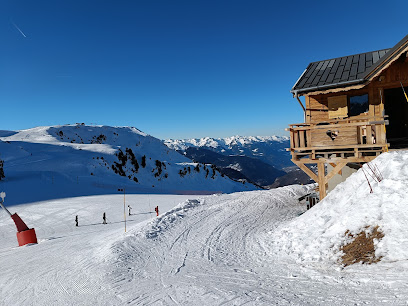
Les Arcs
Experience the thrill of the French Alps at Les Arcs: diverse villages, endless slopes, and unforgettable adventures in the heart of Paradiski.
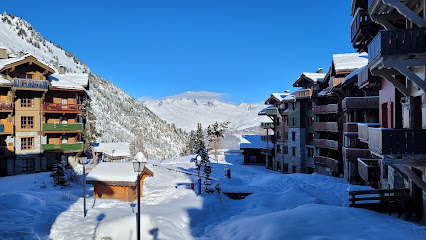
Vanoise Express
Experience breathtaking alpine views on the Vanoise Express, connecting Les Arcs and La Plagne in a thrilling four-minute ride across the valley.
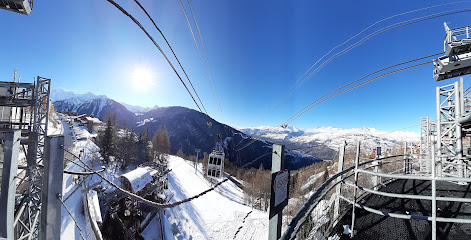
Le Mouflon
Experience traditional Savoyard cuisine in a cozy, family-friendly atmosphere at Le Mouflon restaurant and bar in La Plagne-Tarentaise.
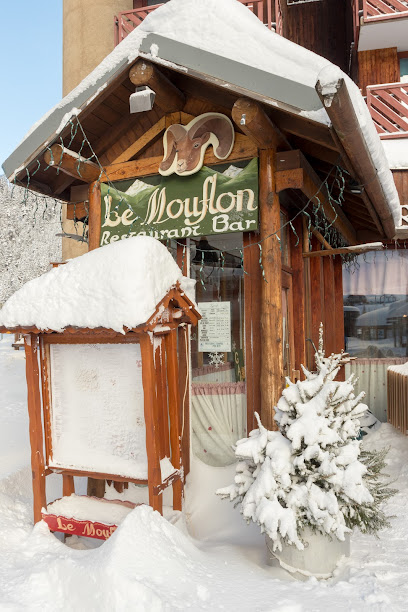
Club Med La Plagne 2100 - French Alps
Experience the ultimate ski-in/ski-out family adventure at Club Med La Plagne 2100, nestled in the heart of the French Alps with all-inclusive luxury.
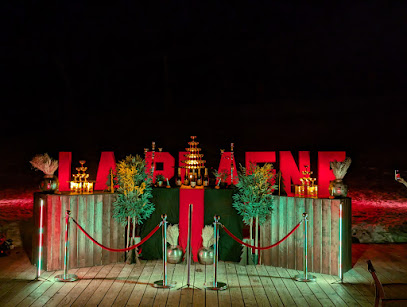
La Face Nord
Experience French cuisine and a vibrant bar scene at La Face Nord, nestled in the heart of Belle Plagne, with stunning mountain views.
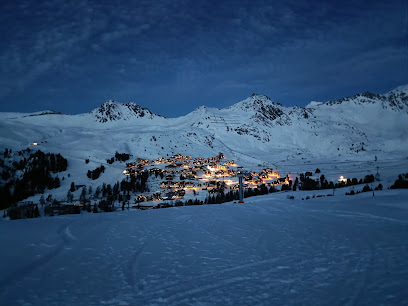
La Plagne Bellecôte
Experience the heart of La Plagne at Plagne Bellecôte: Ski-in/ski-out convenience, lively après-ski, and access to endless alpine adventures.
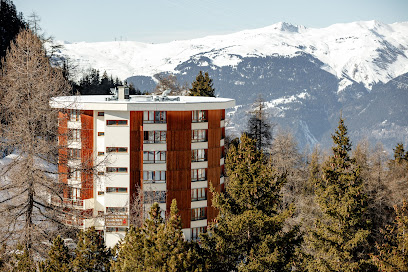
The UCPA La Plagne France
Discover the ultimate alpine adventure at UCPA La Plagne, where comfort meets thrill in the heart of the French Alps.

Les 2 Zèbres
A cozy mountain restaurant in La Plagne Montalbert offering French cuisine, pizzas, and burgers with stunning alpine views and a family-friendly atmosphere.
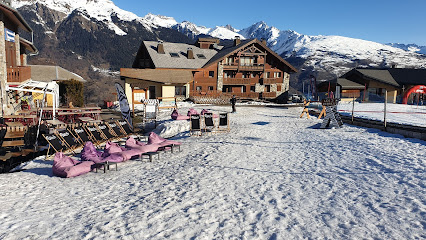
Bobsleigh La Plagne La Plagne Olympic track
Experience Olympic thrills at France's only bobsleigh track in La Plagne. Ride solo or with a pro for an unforgettable adrenaline rush!
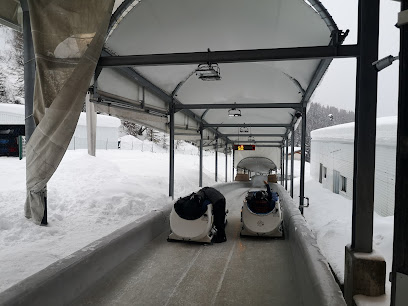
Carlina Hotel Belle Plagne
Experience ski-in/ski-out luxury at Carlina Hotel in Belle Plagne, offering stunning views and Savoyard charm in the heart of the Paradiski area.
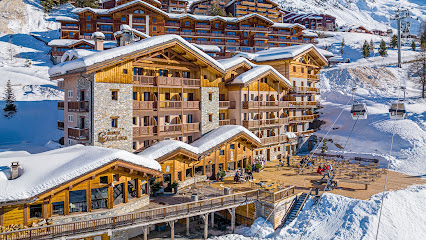
Les Colosses
A culinary adventure in La Plagne-Tarentaise, offering French, Savoyard, and Indian cuisine with stunning mountain views.
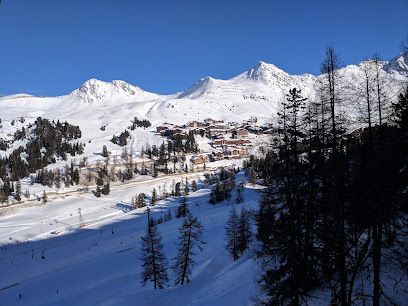
CGH Résidences & Spas - Les Granges du Soleil
Experience luxurious alpine living at CGH Résidences & Spas - Les Granges du Soleil in La Plagne. Perfect for relaxation and mountain adventures.
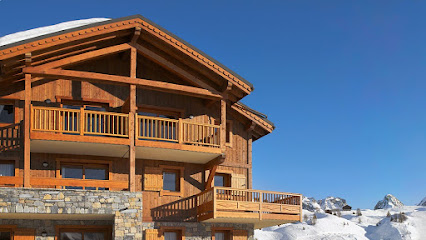
Coin Du Feu
Experience authentic French cuisine in a cozy alpine setting at Coin Du Feu, Mâcot la Plagne. Reservations recommended!
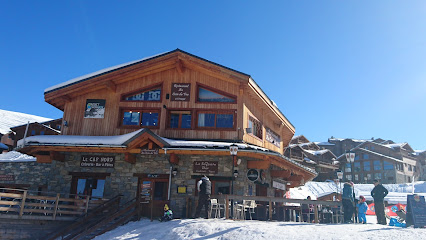
The White Bear
Aime-la-Plagne's vibrant hub for coffee, burgers, pizza, and cocktails, open late in the Centre Commercial. Your go-to spot for any occasion!
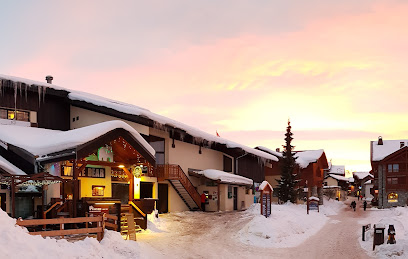
Unmissable attractions to see
QC Terme Pré Saint Didier
Experience ultimate relaxation at QC Terme Prè Saint Didier, a luxurious spa retreat in the breathtaking Aosta Valley, Italy.
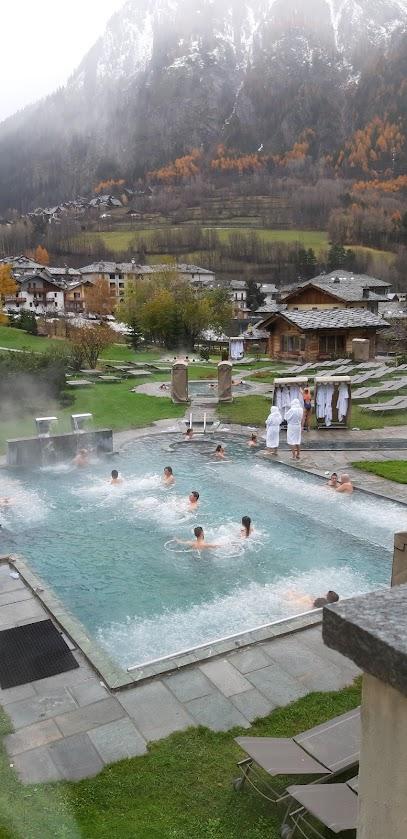
Les Arcs
Experience the thrill of skiing and the serenity of hiking in stunning Les Arcs, a top destination in the French Alps for outdoor enthusiasts.
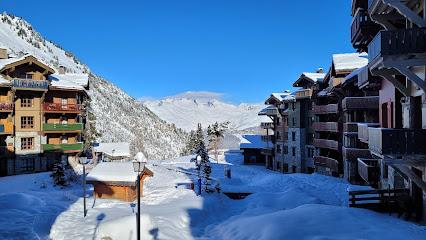
Plagne Aime 2000
Experience the thrill of skiing and the beauty of the French Alps at Plagne Aime 2000, a top-tier resort perfect for all winter sports lovers.
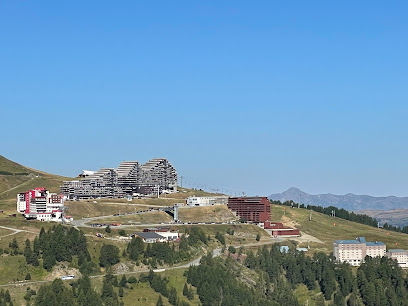
La Folie Douce Les Arcs
Experience exquisite dining and vibrant entertainment at La Folie Douce Les Arcs, a must-visit destination in the heart of the French Alps.

La Plagne - Plagne Montalbert | Office de tourisme
Explore La Plagne - Plagne Montalbert, a premier ski resort in the French Alps, offering year-round adventure and stunning alpine landscapes.
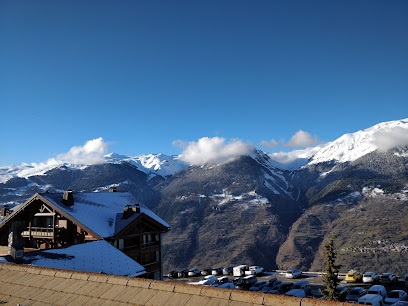
Chalets de l'Arc
Experience the essence of French cuisine amidst the stunning landscapes of the Alps at Chalets de l'Arc.

Vanoise Express
Discover breathtaking views and thrilling access to the vast ski area at Vanoise Express, the iconic mountain cable car in the French Alps.
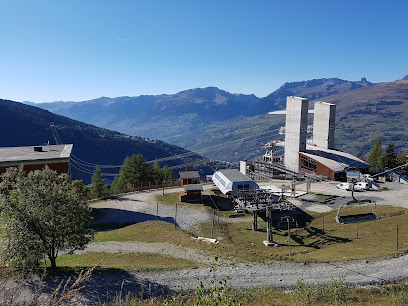
Lac Vert
Explore the breathtaking beauty of Lac Vert, a serene alpine lake in the French Alps, perfect for hiking, picnicking, and photography.
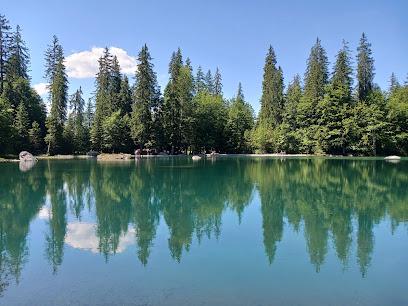
L' Arpette
Experience the best of alpine cuisine and stunning mountain views at L' Arpette, a must-visit restaurant in the French Alps.

Voga Goga
Savor the flavors of the Alps at Voga Goga, a restaurant in Bourg-Saint-Maurice offering a blend of traditional and contemporary alpine cuisine.

Courmayeur Mont Blanc Funivie S.p.A. - Cable Car Courmayeur
Discover the breathtaking vistas and thrilling slopes at the Courmayeur Mont Blanc Cable Car, your gateway to the majestic Aosta Valley.
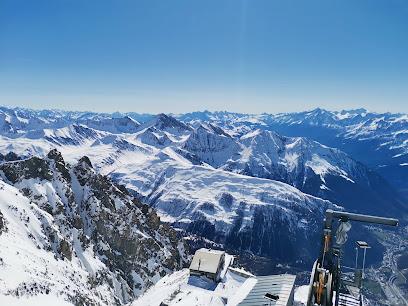
Bobsleigh La Plagne La Plagne Olympic track
Experience the thrill of Olympic bobsleighing in the stunning French Alps at La Plagne's iconic track, a must for every adventure seeker.
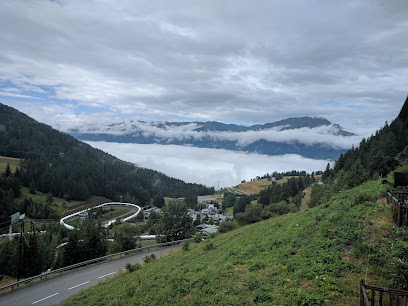
Le Massif Courmayeur
Discover Le Massif Courmayeur, where exquisite dining, luxurious lodging, and a rejuvenating spa experience await you in the stunning Aosta Valley.

La Plagne - Champagny en Vanoise | Office de tourisme
Experience the charm of Champagny en Vanoise, a picturesque alpine village offering skiing, hiking, and rich cultural experiences in the French Alps.
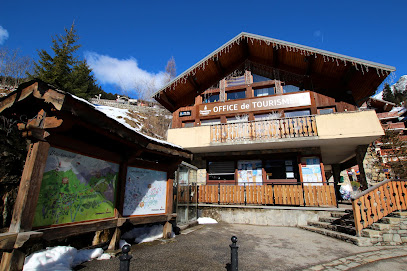
French Ski School De Plagne Bellecôte
Discover the ultimate skiing experience at the French Ski School De Plagne Bellecôte, where expert instructors and stunning slopes await.
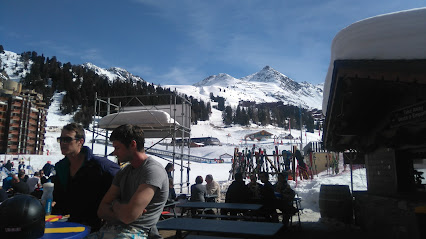
Essential places to dine
La Roche de Mio
Experience exquisite French cuisine with breathtaking alpine views at La Roche de Mio in Mâcot-la-Plagne.
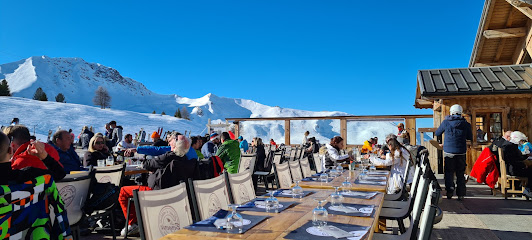
La Bergerie
Experience authentic French cuisine at La Bergerie in La Plagne-Tarentaise, where stunning views meet delicious flavors.
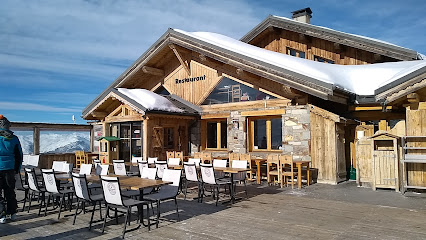
Le Mouflon
Experience authentic French cuisine at Le Mouflon in La Plagne—where taste meets tradition in a cozy alpine setting.
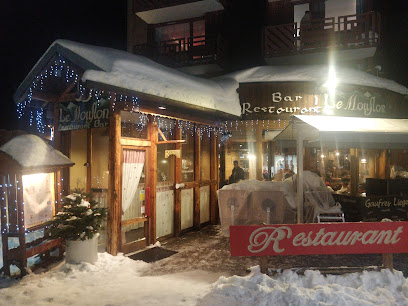
Restaurant Le Matafan Belle Plagne
Experience authentic French cuisine in La Plagne-Tarentaise at Restaurant Le Matafan, where alpine charm meets culinary excellence.
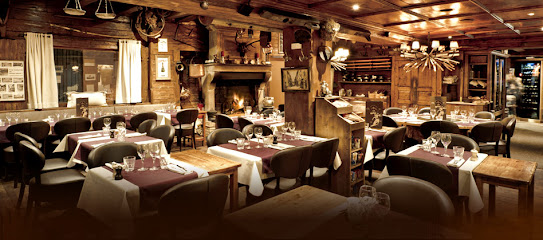
La Face Nord
Experience exquisite French cuisine at La Face Nord in La Plagne-Tarentaise – where alpine charm meets culinary excellence.
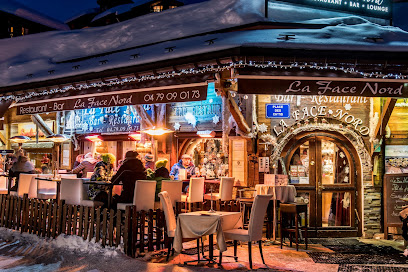
Restaurant Le 360
Experience exquisite French cuisine at Restaurant Le 360 in Mâcot-la-Plagne with stunning mountain views and authentic regional flavors.
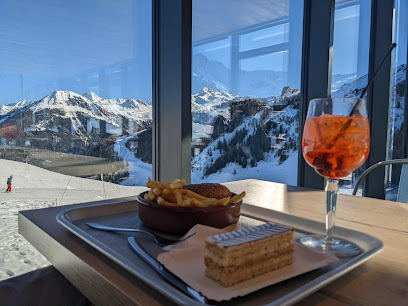
Restaurant Le Dou Du Praz
Discover authentic French cuisine at Restaurant Le Dou Du Praz in La Plagne-Tarentaise - where every dish tells a story.
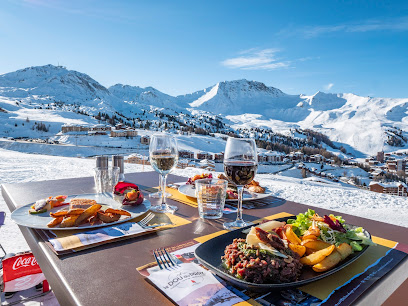
Le Bonnet
Discover Le Bonnet: A cozy American restaurant in La Plagne-Tarentaise serving delicious hamburgers amidst stunning alpine scenery.
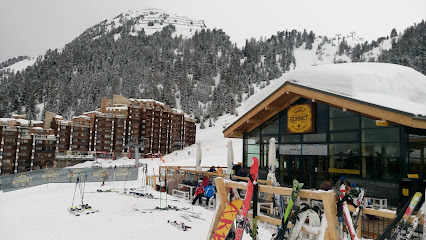
Restaurant le Loup Blanc
Experience authentic French cuisine with stunning mountain views at Restaurant le Loup Blanc in La Plagne-Tarentaise.
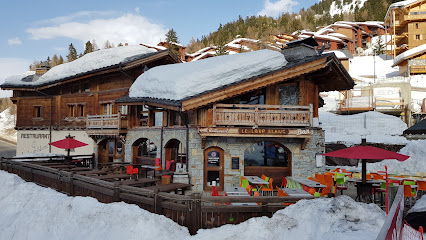
Le Chalet des Dolines
Experience authentic Savoyard cuisine at Le Chalet des Dolines in La Plagne-Tarentaise, where mountain views meet delightful flavors.
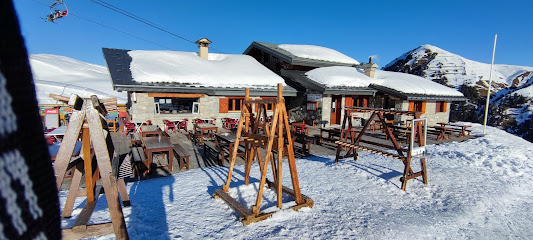
La Casa De L'ours
Experience exquisite French cuisine at La Casa De L'ours in La Plagne-Tarentaise – where flavor meets mountain charm.
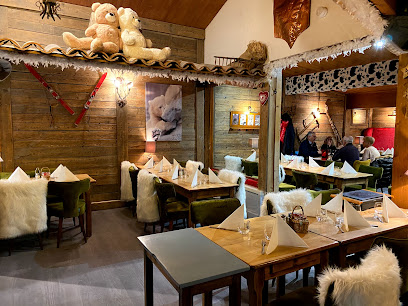
La Godille
Experience authentic French flavors at La Godille in La Plagne - your culinary retreat in the Alps awaits.
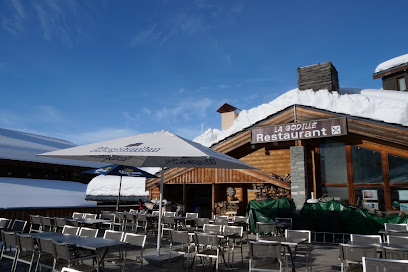
Coin Du Feu
Experience authentic French cuisine in Mâcot la Plagne's picturesque setting at Coin Du Feu – where every meal is a celebration.
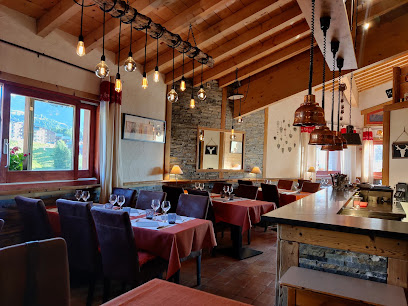
Le K2
Experience the flavors of French cuisine at Le K2 in La Plagne-Tarentaise – where exquisite dining meets cozy alpine charm.
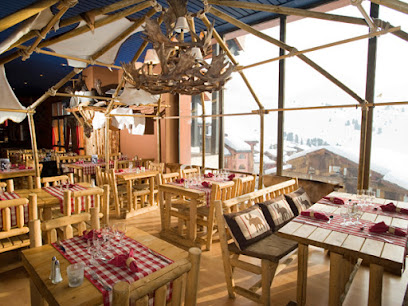
Le Refuge
Experience authentic French cuisine at Le Refuge in La Plagne-Tarentaise, where every dish is crafted with love and local ingredients.
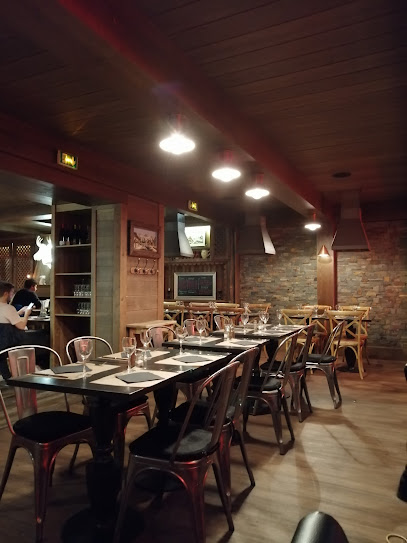
Markets, malls and hidden boutiques
E.Leclerc AIME LA PLAGNE
Explore local flavors and fresh produce at E.Leclerc Aime La Plagne, your essential supermarket in the heart of the Alps.
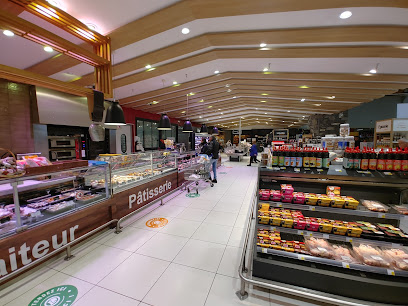
L'Alpage
Experience authentic French crêpes in the heart of Tarentaise, where alpine beauty meets culinary delight.
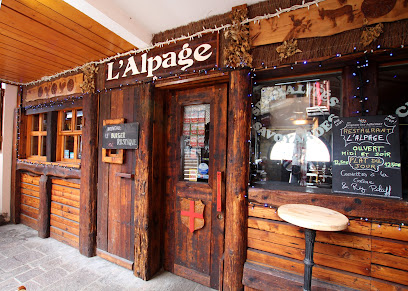
INTERSPORT - LA PLAGNE MONTALBERT
Experience the thrill of winter sports with top-quality rentals and gear at INTERSPORT - LA PLAGNE MONTALBERT in the stunning French Alps.
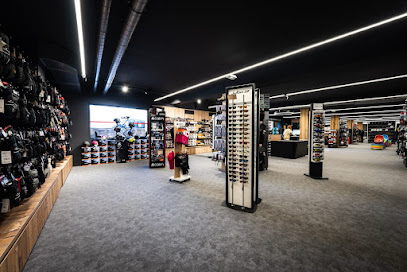
Rive Gauche
Experience the best of French cuisine at Rive Gauche in La Plagne-Tarentaise, where crepes and tapas come together in a cozy atmosphere.
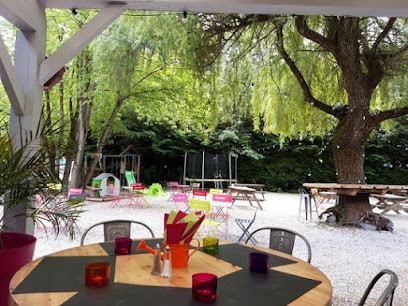
Plagne 1800 Sports
Discover the ultimate ski experience at Plagne 1800 Sports, your go-to destination for top-notch ski rentals and mountain gear in La Plagne-Tarentaise.
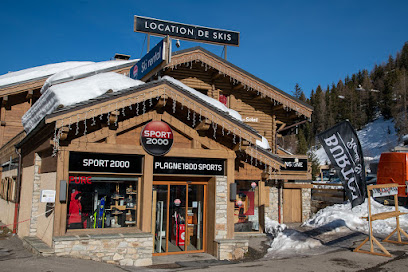
ELPRO Belle Plagne Skimium
Discover top-notch ski rentals and outdoor gear at ELPRO Belle Plagne, your ultimate destination for winter sports in La Plagne-Tarentaise.
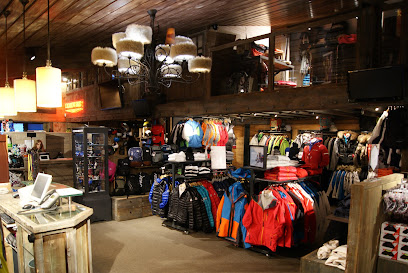
Sport 2000 Passion 73 - Location ski La Plagne
Experience the thrill of skiing in La Plagne with top-quality rentals and gear from Sport 2000 Passion 73, your one-stop destination for winter sports.
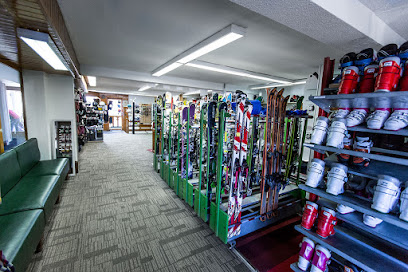
Pharmacie Parapharmacie Plagne Bellecôte
Discover the essential health and wellness hub in La Plagne-Tarentaise at Pharmacie Parapharmacie Plagne Bellecôte, where your well-being is our priority.
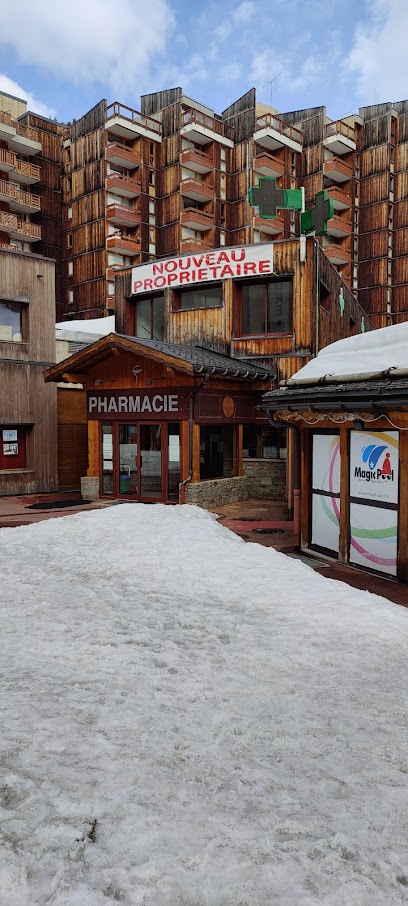
SPAR Plagne Villages
Discover local delights at SPAR Plagne Villages, your convenient stop for fresh produce, organic goods, and delicious bakery treats in La Plagne-Tarentaise.
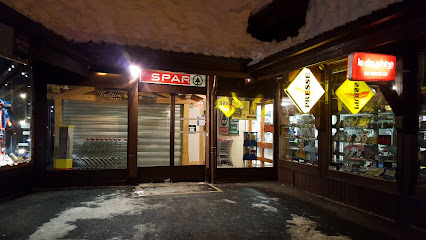
INTERSPORT - LA PLAGNE 1800
INTERSPORT - LA PLAGNE 1800 offers premium ski and outdoor gear rentals, ensuring adventure and quality in the stunning French Alps.
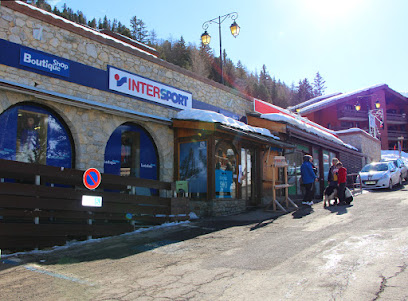
Skimium - ELPRO PLAGNE BELLECOTE
Discover top-notch ski rentals and mountain gear at Skimium - ELPRO Plagne Bellecote, the ultimate destination for outdoor sports in the French Alps.
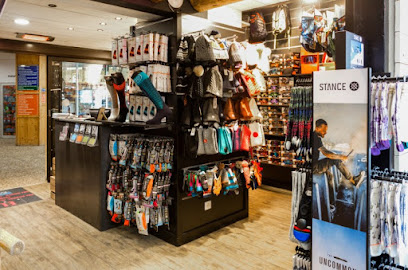
Skimium - ELPRO PLAGNE CENTRE
Discover premier ski rentals and mountain gear at Skimium - ELPRO PLAGNE CENTRE in La Plagne-Tarentaise for an unforgettable winter adventure.
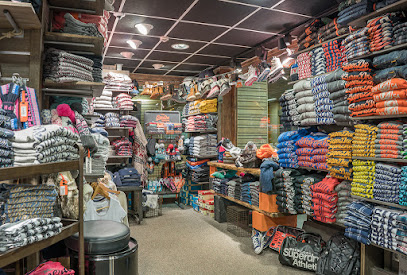
Montagne Experience
Explore Montagne Experience in Aime-la-Plagne for top-quality sporting gear and rental services, perfect for your alpine adventures.
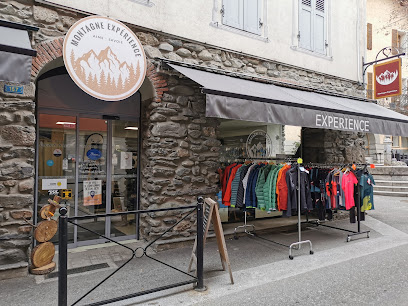
Le Garde Manger
Discover gourmet flavors at Le Garde Manger, Aime-la-Plagne's premier grocery store offering fresh baked goods, sandwiches, and local delicacies.
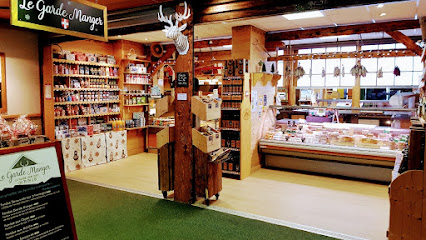
Gourmet Gallery
Explore the finest local delicacies at Gourmet Gallery, Mâcot-la-Plagne's premier gourmet grocery store offering an exquisite selection of culinary delights.
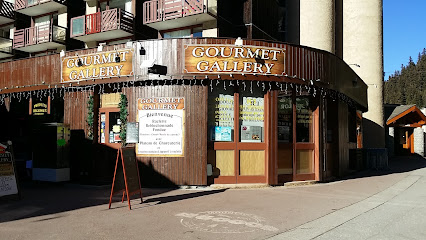
Essential bars & hidden hideouts
La Roche de Mio
Savor exquisite French cuisine at La Roche de Mio, a mountain-top restaurant offering stunning views and a memorable dining experience in Mâcot-la-Plagne.
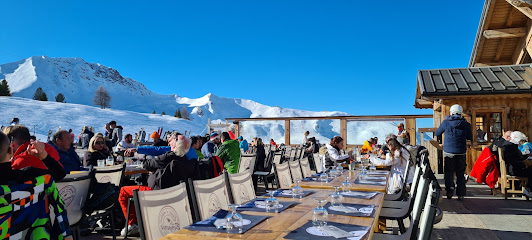
La Bergerie
Discover La Bergerie in La Plagne-Tarentaise, where exquisite French cuisine meets stunning alpine views for an unforgettable dining experience.
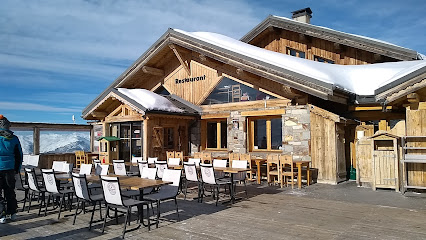
Le Mouflon
Experience the authentic flavors of French cuisine at Le Mouflon, a charming restaurant in La Plagne-Tarentaise offering a cozy dining atmosphere and exquisite dishes.
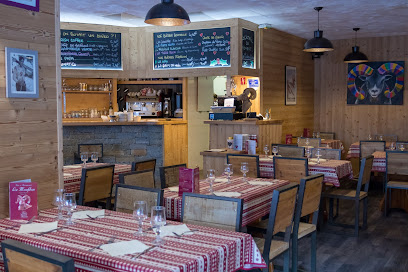
Restaurant Le Matafan Belle Plagne
Experience exquisite French cuisine in the heart of La Plagne-Tarentaise, where alpine views meet culinary excellence.
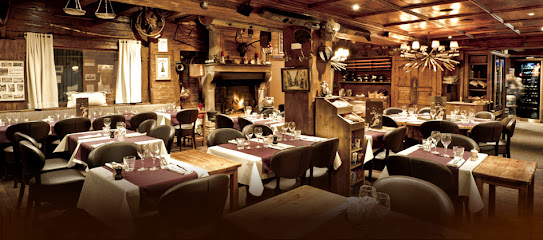
La Face Nord
Experience the best of French cuisine at La Face Nord, nestled in the heart of the French Alps, where culinary excellence meets stunning alpine views.
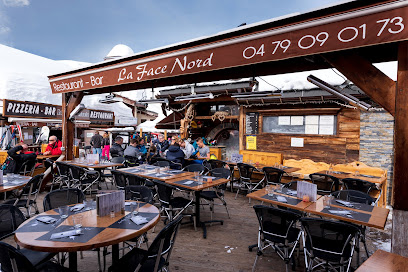
Restaurant Le Dou Du Praz
Experience authentic French cuisine at Restaurant Le Dou Du Praz, a cozy alpine dining destination in La Plagne-Tarentaise.
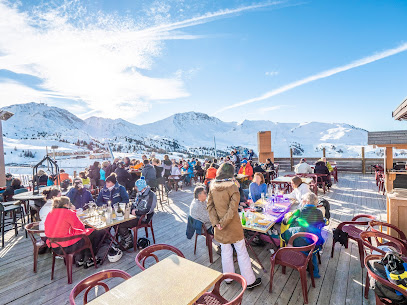
Le Bonnet
Discover the taste of America in the French Alps at Le Bonnet, where delicious hamburgers and comfort food await you!
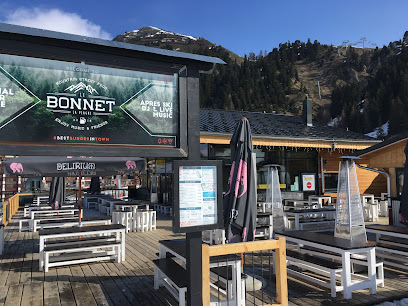
Le Chalet des Dolines
Discover the flavors of the Alps at Le Chalet des Dolines, a cozy restaurant in La Plagne-Tarentaise, perfect for après-ski dining.
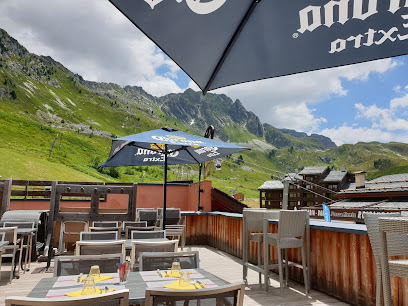
Carlina Hotel Belle Plagne
Discover the exquisite comfort and breathtaking views at Carlina Hotel Belle Plagne, your perfect Alpine retreat in the French Alps.
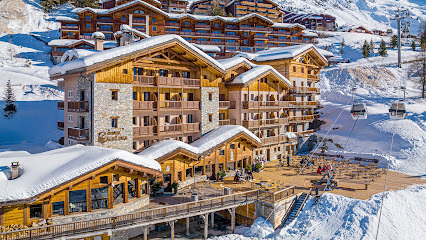
La Godille
Experience authentic French cuisine at La Godille in La Plagne-Tarentaise, where alpine charm meets culinary excellence.
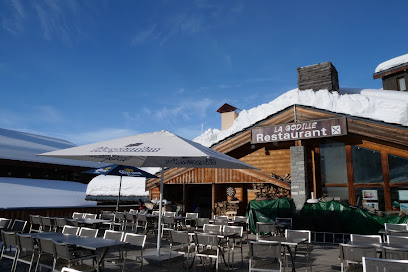
Cheyenne Café Bar/Restaurant
Experience the warmth and flavors of Cheyenne Café Bar/Restaurant in La Plagne-Tarentaise, where delicious pizzas and a cozy atmosphere await.
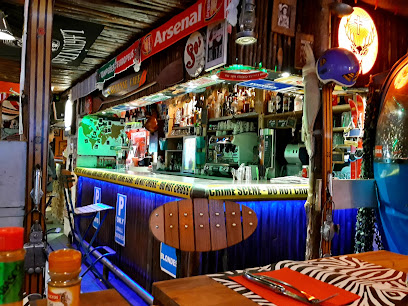
Bar La Mine
Discover the vibrant nightlife at Bar La Mine in La Plagne-Tarentaise, a live music bar offering a unique blend of entertainment and atmosphere.
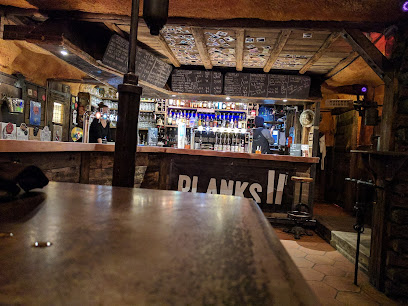
Coin Du Feu
Experience the best of alpine dining at Coin Du Feu, where traditional French cuisine meets stunning mountain views.
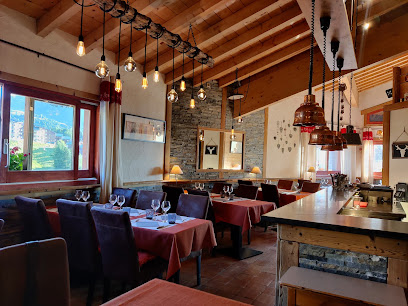
The White Bear
Experience the perfect blend of cocktails, gourmet burgers, and cozy ambiance at The White Bear in Aime-la-Plagne, your go-to spot in the French Alps.
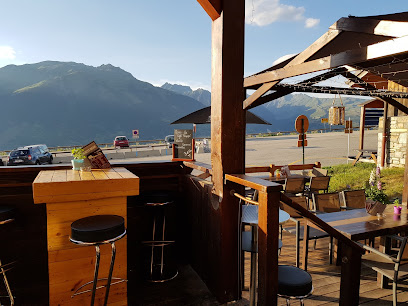
Le Monica's
Experience the best of French cuisine and pizza in the heart of Plagne Soleil at Le Monica's, your perfect dining spot after a day of Alpine adventures.
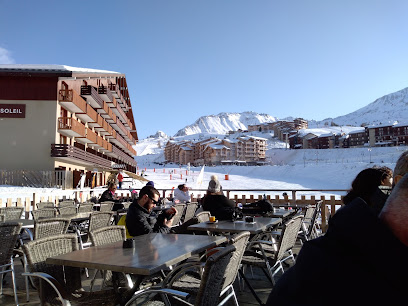
Local Phrases about La Plagne
-
- HelloBonjour
[bon-zhoor] - GoodbyeAu revoir
[oh re-vwar] - YesOui
[wee] - NoNon
[nohn] - Please/You're welcomeS'il vous plaît/De rien
[seel voo pleh/duh ryehn] - Thank youMerci
[mehr-see] - Excuse me/SorryExcusez-moi/Désolé
[ehk-skew-zay mwah/dey-zoh-lay] - How are you?Comment ça va?
[koh-mohn sah vah?] - Fine. And you?Bien. Et toi?
[byen. ay twah?] - Do you speak English?Parlez-vous anglais?
[par-lay voo ahn-glay?] - I don't understandJe ne comprends pas
[zhuh nuh kohm-prahn pah]
- HelloBonjour
-
- I'd like to see the menu, pleaseJe voudrais voir le menu, s'il vous plaît
[zhuh voo-dray vwahr luh meh-nyoo, seel voo pleh] - I don't eat meatJe ne mange pas de viande
[zhuh nuh mahnj pah duh vyand] - Cheers!Santé!
[sahn-tay] - I would like to pay, pleaseJe voudrais payer, s'il vous plaît
[zhuh voo-dray pay-ay, seel voo pleh]
- I'd like to see the menu, pleaseJe voudrais voir le menu, s'il vous plaît
-
- Help!Au secours!
[oh sey-koor] - Go away!Allez-vous en!
[ah-lay voo zahn] - Call the Police!Appelez la police!
[ah-peh-lay lah poh-lees] - Call a doctor!Appelez un médecin!
[ah-peh-lay uh may-deh-sahn] - I'm lostJe suis perdu
[zhuh swee pehr-doo] - I'm illJe suis malade
[zhuh swee mah-lahd]
- Help!Au secours!
-
- I'd like to buy...Je voudrais acheter...
[zhuh voo-dray zheh-tay...] - I'm just lookingJe regarde juste
[zhuh ruh-gard zhust] - How much is it?Combien ça coûte?
[kohm-byen sah koot?] - That's too expensiveC'est trop cher
[say troh shehr] - Can you lower the price?Pouvez-vous baisser le prix?
[poo-veh voo beh-say luh pree?]
- I'd like to buy...Je voudrais acheter...
-
- What time is it?Quelle heure est-il?
[kehl uhr eh-teel?] - It's one o'clockIl est une heure
[eel ehz oon uhr] - Half past (10)Dix heures et demie
[dees uhr eh dehm-ee] - MorningMatin
[mah-tahn] - AfternoonAprès-midi
[ah-preh mee-dee] - EveningSoir
[swahr] - YesterdayHier
[yehr] - TodayAujourd'hui
[oh-zhoor-dwee] - TomorrowDemain
[duh-man] - 1Un
[uhn] - 2Deux
[duh] - 3Trois
[twah] - 4Quatre
[kat] - 5Cinq
[sank] - 6Six
[sees] - 7Sept
[seht] - 8Huit
[weet] - 9Neuf
[nuff] - 10Dix
[dees]
- What time is it?Quelle heure est-il?
-
- Where's a/the...?Où est un/le...?
[oo eh uh/luh?] - What's the address?Quelle est l'adresse?
[kehl eh lah-dress?] - Can you show me (on the map)?Pouvez-vous me montrer (sur la carte)?
[poo-veh voo muh mohn-tray (soor lah kart)?] - When's the next (bus)?Quand est le prochain (bus)?
[kahnd eh luh proh-shahn (boos)?] - A ticket (to ....)Un billet (pour ...)
[uhn bee-yay (poor ...)]
- Where's a/the...?Où est un/le...?
History of La Plagne
-
La Plagne, located in the French Alps, has a history that dates back to ancient times. Archaeological evidence indicates that the area was inhabited by ancient tribes who were drawn to its fertile valleys and abundant natural resources. Artifacts from the Bronze Age have been discovered in the surrounding regions, suggesting early human settlement and activity.
-
During the medieval period, La Plagne was part of the Duchy of Savoy. The region saw the construction of fortifications and castles, which served as protection against invasions and as symbols of feudal power. The local economy was primarily based on agriculture, with the cultivation of grains and livestock farming being predominant.
-
The Industrial Revolution brought significant changes to La Plagne and the surrounding areas. The development of mining activities, particularly for lead, zinc, and silver, transformed the local economy. By the late 19th century, several mines were in operation, attracting workers and boosting the population. This period also saw the construction of infrastructure, including roads and railways, to support the mining industry.
-
La Plagne's transformation into a winter sports destination began in the 1960s. The initiative was led by local authorities and entrepreneurs who saw the potential for tourism in the snowy mountains. The first ski lifts were installed in 1961, and La Plagne quickly gained popularity as a ski resort. The area expanded its facilities over the years, including the construction of high-altitude villages to accommodate visitors.
-
La Plagne played a significant role in the 1992 Winter Olympics held in Albertville, France. The resort hosted the bobsleigh, luge, and skeleton events, which brought international attention to the area. The Olympic facilities, including the bobsleigh track, were built to the highest standards, and many of these structures remain in use today for both competitions and tourist activities.
-
Today, La Plagne is one of the most popular ski resorts in the world, attracting visitors from all over. The resort is part of the Paradiski area, one of the largest linked ski areas globally. Modern La Plagne offers a range of activities beyond skiing, including snowboarding, snowshoeing, and summer mountain biking. The area has also developed a strong cultural scene, with events and festivals celebrating its alpine heritage.
La Plagne Essentials
-
La Plagne is located in the Tarentaise Valley in the French Alps. The nearest international airports are Geneva Airport in Switzerland and Lyon-Saint Exupéry Airport in France. Both airports are approximately 2-3 hours away by car. From the airports, you can either rent a car, book a private transfer, or take a combination of train and bus. The nearest major train station is in Aime, from where regular shuttle buses and taxis operate to La Plagne.
-
La Plagne is a well-connected resort with a free shuttle bus service that runs between the various villages and lifts. The Funiplagne Grande Rochette and Vanoise Express are popular cable cars that link different parts of the resort. Taxis are also available but can be expensive. Renting a car is an option if you plan to explore the surrounding areas, but remember that parking can be limited in peak seasons.
-
The official currency in France is the Euro (EUR). Credit cards are widely accepted in hotels, restaurants, and shops in La Plagne. It is advisable to carry some cash for smaller establishments and market purchases. ATMs are available in the resort, but it’s always good to have some cash on hand, especially in more remote areas.
-
La Plagne is generally a safe destination for tourists. However, like any popular tourist area, it is important to stay vigilant. Be cautious of pickpockets in busier areas and avoid leaving your belongings unattended. There are no specific high-crime areas targeting tourists, but it’s always best to stay aware of your surroundings, particularly in crowded places.
-
In case of emergency, dial 112 for immediate assistance, which is the European emergency number. There are medical facilities and a small hospital in the resort. It is recommended to have travel insurance that covers medical emergencies and alpine activities. For minor health issues, there are pharmacies in La Plagne where you can purchase over-the-counter medications.
-
Fashion: Do dress in layers, as weather can change quickly in the mountains. Avoid wearing high heels or non-grip shoes due to the snow and ice. Religion: Do be respectful when visiting religious sites, although La Plagne is not particularly known for religious tourism. Public Transport: Do be courteous and give way to other passengers. Don’t eat or drink on public transport. Greetings: Do greet people with a friendly 'Bonjour' and a handshake. Eating & Drinking: Do try local Savoyard dishes like fondue and raclette. Don’t forget to make a reservation at popular restaurants, especially during peak season.
-
To experience La Plagne like a local, visit during the off-peak seasons when the slopes are less crowded and you can enjoy more of the village charm. Engage with the locals and try to learn a few basic French phrases; they appreciate the effort. Don’t miss out on the local markets where you can buy fresh cheese, charcuterie, and other regional specialties. For a unique experience, try night skiing or take a moonlit snowshoe walk.
Trending Landmarks in La Plagne
-
Parc national de la Vanoise
-
Les Arcs
-
Vanoise Express
-
Le Mouflon
-
Club Med La Plagne 2100 - French Alps
-
La Face Nord
-
La Plagne Bellecôte
-
The UCPA La Plagne France
-
Les 2 Zèbres
-
Bobsleigh La Plagne La Plagne Olympic track
-
Carlina Hotel Belle Plagne
-
Les Colosses
-
CGH Résidences & Spas - Les Granges du Soleil
-
Coin Du Feu
-
The White Bear
Nearby Cities to La Plagne
-
Things To Do in Grenoble
-
Things To Do in Geneva
-
Things To Do in Turin
-
Things To Do in Zermatt
-
Things To Do in Montreux
-
Things To Do in Vevey
-
Things To Do in Lausanne
-
Things To Do in Lyon
-
Things To Do in Murren
-
Things To Do in Thun
-
Things To Do in Interlaken
-
Things To Do in Grindelwald
-
Things To Do in Bern
-
Things To Do in Ascona
-
Things To Do in Locarno













